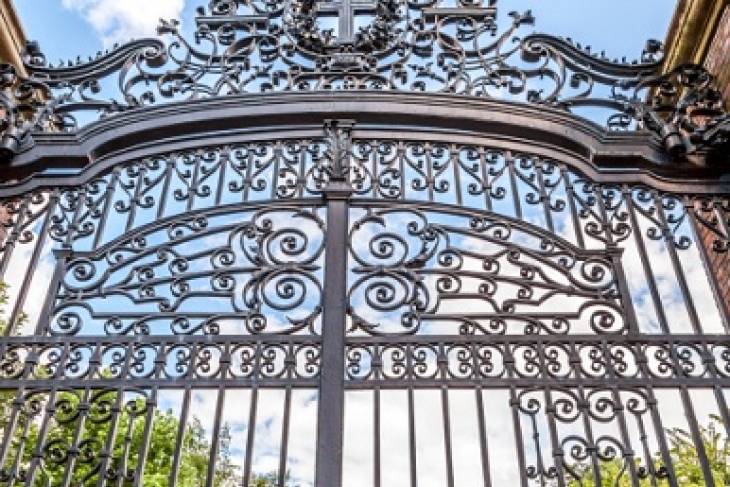A report last month from the “Making Caring Common” project at the Harvard Graduate School of Education calls on elite colleges and universities to “send different messages” to high school students and parents about what matters—and, more importantly, what will gain admission—to America’s most hallowed higher education institutions. “Today’s culture sends young people messages that emphasize personal success rather than concern for others and the common good,” laments the report, entitled Turning the Tide. To combat this rising swell of student stress and self-regard, the college admissions process should motivate high schoolers to “contribute to others and their communities in more authentic and meaningful ways.”
Top admissions and financial aid officials at several dozen elite American colleges and universities have eagerly endorsed the report’s recommendations, which include encouraging “collective action that takes on community challenges” and looking for evidence of “authentic, meaningful experiences with diversity” when admissions decisions are made. New York Times columnist Frank Bruni praised the report, which he claims “nails the way in which society in general—and children in particular—are badly served by the status quo.”
It’s a bit much, frankly. I’m not quite convinced by the sudden alarm over the “undue academic performance pressure” placed on our children, nor am I moved by the concern of these elite institutions for students’ collective well-being. Harvard alone sits atop a $35 billion endowment, a mere 5 percent of which would suffice to grant full scholarships to each of its undergraduates—with enough left over to provide $30,000 scholarships to every single student (over fifty thousand) at every other Ivy League school. Yet concern for the common good and acting in the public interest means telling high school students that they should demonstrate “meaningful, sustained community service?”
After you, Harvard.
Let me not be unkind. The report raises serious and legitimate issues. Sleep deprivation, anxiety, and depression are, without question, taking a toll on a subset (albeit a far smaller one than commonly imagined) of America’s high school students striving to earn a place at top schools. Nothing good will come from students overloading on AP courses and extracurriculars they’re not interested in merely to impress the admissions office at Brown. The authors of Turning the Tide may even be correct to worry that too many teenagers show more interest in “personal success rather than concern for the common good.”
But here again, messages matter less than deeds: If you’re serious about ending the academic and extracurricular arms race, why not scrap the current admissions process altogether in favor of an admissions lottery? List clear qualifications for admission—a threshold SAT or ACT score, GPA, or number of hours of community service, for example—set aside the clearly unqualified, and choose a freshman class randomly from among those who remain. Without question, elite colleges could fill their freshman classes many times over with qualified high school seniors who have earned a fair shot at a seat. With the exception of a comparatively small percentage of superior or substandard applicants at the margins, an acceptance is already a lottery masquerading as a meritocracy. “A lottery system would relieve the pressure on students. Instead of being the ‘best,’ they would only have to be ‘good enough’—and lucky,” notes Swarthmore College psychology professor Barry Schwartz. “It would free students up to do the things they were really passionate about in high school,” which is the outcome Turning the Tide purports to favor. Elite schools could still make whatever allowances they deem just and fair for students from underserved populations (NB: The rich, legacies, and athletes are not underserved populations). But there would be no point to taking extra APs or a spring break trip to rebuild houses in Haiti unless that was where your intellectual hunger or zest for service led you, since none of it would make you more likely to win admission.
Top colleges can, as the report says, “warn students and parents applications that are ‘overcoached’ can jeopardize admission outcomes” and “discourage students from taking admissions tests more than twice.” (Turning the Tide is sloppy with warnings, conveyings, and discouragements.) But it’s arrogance to think that the college admissions process can alter human nature or tap the brakes on ambition. Nor does it offer much comfort when elite schools are so eager to become authorities on what comprises “authentic and meaningful community service.” It all leaves the nagging sense that our best colleges are suddenly less interested in encouraging academic excellence among high school students—and a little more interested in doling out compassion points to applicants who might otherwise be left on the outside looking in.
If that’s not what they really have in mind, a lottery would be far better—and more fair—for high schoolers than any of the report’s recommendations. Indeed, one needn’t be a cynic to read Turning the Tide as an attempt by elite colleges to win a PR victory for expressing concern about a system they created, maintain, and benefit handsomely from.

